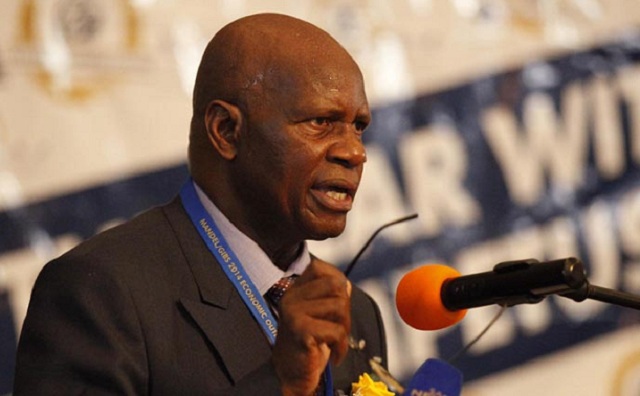Cyber security now a major concern

Nduduzo Tshuma, Political Editor
CYBER security has over the years become a serious concern among countries and businesses as the globe forges ahead with industrialisation that inevitably will see the rise in the use of the cyberspace to conduct business.
Top of the list of the concerns of leaders worldwide is the rising trend of cyber terrorism that has targeted internet networks with the view of either sabotaging services or targeting individuals.
In more developed countries like the US, terrorists have targeted the distribution networks relying on internet connections like water and electricity.
The cyber space has also been used by terrorists to recruit members of shared persuasions in different countries so that they could commit criminal acts on behalf of their respective organisations.
The web has also been abused to commit crimes like money laundering, at times to aid terrorist organisations, human trafficking among other criminal acts.
This has led to the emergence of activities of actors commonly referred to as “lone wolves” who have in recent years been involved in the shooting in public places resulting in the death of innocent people.
The internet in other words has redefined terrorism of the olden days of suicide bombers or a group of people planting bombs in buildings or firing at people but has expanded to include self actors that have become hard to detect or predict.
States, as in the case of China and the US, themselves have accused each other of spying and using such methods like attacking each other’s cyber spaces to compromise systems and steal information that would give them an advantage against opponents.
Countries therefore need to strengthen their cyber security to protect territorial integrity, their citizens and business from cyber attacks that would bear negative if not disastrous effects.
It is against this background that the introduction of the ministry of Cyber Security, Threat Detection and Mitigation by President Mugabe when he reshuffled his cabinet last week, should be appreciated.
Former Finance Minister Cde Patrick Chinamasa was appointed to head the ministry.
Presidential spokesperson Mr George Charamba explaining the creation of the ministry said the portfolio was a protective one aimed at defending the nation from cyber threats posed by the abuse of social media.
“I want to give these words from the President. He said Ministry iyoyo, one, it’s new, ndiyo riva redu kubata makonzo aya anoita mischief using cyber space. He (President Mugabe) is very clear because this is a new ministry; it needs law development, which is precisely why he thought of no other than a person with legal competence to handle that area. Then, of course, he also wants the new Minister to be able to draw from the experience from other countries.
“He specifically made reference to Russia, he made reference to China, and he made reference to the Koreans as countries that have done exceedingly well in terms of ensuring some kind of order and lawfulness in that area. He then spoke about the structures to make sure that the Ministry then takes a workable form. And of course to use his (President Mugabe) words again, it’s called a protective Ministry, which means to protect the interests of the State,” said Mr Charamba.
“This is coming against the background of the abuse that we saw not too far back on social media, where the social media then causes some kind of excitement to the country, not on the basis of fact, but generation of copy which is in fact calculated to trigger a sense of panic in the economy, and that in itself suggests that it is indeed a major threat to State security.
“But you also recall that when we were doing the Bi-National Commission in South Africa, that subject matter came up and it was also a subject of discussion between the two Heads of State of South Africa and Zimbabwe, because we need to evolve a joint strategy to deal with that mischief. Saka hanzi vari kuita mischief iyoyo hokoyoi taisa in place riva. It is actually a very strategic responsibility that the minister has been given.
“He has been given that responsibility precisely because he has legal skills. It’s a new area that needs to develop a body of law.”
The appointment of Cde Chinamasa generated a lot of interest with some sections of the opposition alleging that the ministry was specially designed to clamp down on social media and freedom of expression ahead of the 2018 elections.
The prophets of doom also taunted Minister Chinamasa labelling him all sorts of names some as ridiculous as “minister of WhatsApp.”
Some went on to argue that Zimbabwe does not face any real threats hence the establishment of the Cyber Security ministry was not necessary.
However, it must be known that every country, regardless of size and might or economic development needs to come up with strategies to mitigate it from cyber threats especially in the developing countries that are pushing for massive industrialisation.
In Zimbabwe, institutions of higher learning, banks, and even media house have been attacked by cyber criminals.
Of note are the Nust and Harare Institute of Technology attacks earlier this year, where hackers demanded a ransom of more than $5 million to release sensitive student information they had captured.
A majority of cyber attacks have been going unreported because there was no law in the country to deal with the global terrorism threat in the cyber arena.
The new Ministry could be just the panacea needed to safeguard citizens’ information online.
It is the role of every sovereign state to protect itself and its citizens from any form of threats that is likely to cause instability and ensuring cyber security is no exception.











Comments